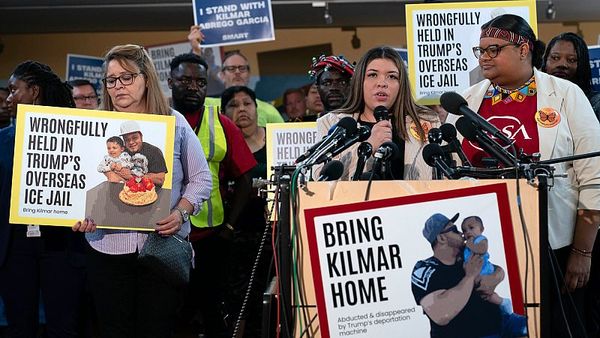
Russia does not plan to declare martial law following Tuesday’s large-scale drone strike on Moscow, the Kremlin spokesperson, Dmitry Peskov, has said.
The Kremlin’s comments came after several leading Russian officials and pro-war figures urged the president, Vladimir Putin, to respond to the drone attacks by declaring a state of total war.
On Tuesday, Ramzan Kadyrov, the strongman head of Chechnya whose forces have been fighting in Ukraine, said the Kremlin should declare martial law nationwide and use all its resources in Ukraine “to sweep away that terrorist gang”.
The Wagner mercenary group chief, Yevgeny Prigozhin, similarly said that Moscow had to “mobilise the whole of society right now”.
Hardline nationalists have for weeks called on the Kremlin to announce a new round of mobilisation, a widely unpopular move that the Kremlin has so far chosen to avoid.
Putin on Tuesday appeared to play down the attack on Moscow, and Russian state media touted that there was “no panic” in the city after the unprecedented incident.
The raids on Moscow on Tuesday were the latest in a series of drone strikes and sabotage operations behind enemy lines that have intensified in the recent week ahead of a much anticipated Ukrainian counteroffensive.
The attacks pale in comparison with Russia’s deadly assaults on Ukrainian cities that have hit large residential buildings or crowded business centres and killed dozens of people. But they have brought a sense of nervousness to the Russian capital as it becomes evident to Muscovites that the war that Putin unleashed over 15 months ago is coming home.
Ukraine almost never publicly claims responsibility for such attacks, but western intelligence agencies have previously indicated that the strikes originated with the Ukrainian intelligence service.
When asked about the drone strikes on Moscow, the US said it “does not support attacks inside of Russia”. But Germany, another key ally of Ukraine, on Wednesday said it deemed Ukrainian attacks on Russian territory to be legitimate in terms of international law, and the British foreign secretary, James Cleverly, said that Ukraine had a right to project force beyond its own borders.
Russian media close to the security services wrote that as many as 25 drones participated in Tuesday’s attack, flying over some of the wealthy districts of Moscow that house much of Russia’s political elite – and Putin’s Novo-Ogaryovo state residence.
The Moscow Times, citing a source close to the Kremlin, reported that the Russian president was at the Novo-Ogaryovo residence during the drone attacks, and was woken up early in the morning by his security services.
In a separate incident on Wednesday, drones attacked two oil refineries just 40-50 miles east of Russia’s biggest oil export terminals, sparking a fire at one but causing no damage to the other, Russian officials said.
Oil refineries in Russia have emerged as one of the top targets for Ukraine as Kyiv seeks to degrade Moscow’s military capabilities.
Ukraine also said on Wednesday that Russian forces blew up a road connecting the Ukrainian city of Chernihiv to the Russian city of Bryansk, in a move that signals Moscow is concerned about future cross-border attacks into its territory.
Video footage circulating on Telegram showed an explosion near the Three Sisters monument on the border of Russia, Ukraine and Belarus.
“They went from ‘We’ll take Kyiv in three days’ to ‘Blow up the road so they don’t capture us,’” Ukrainian border guard service spokesperson Andriy Demchenko tweeted.
Last week, two anti-Kremlin armed groups made up of Russian nationals launched daring cross-border attacks from Ukrainian territory.
Elsewhere, Russia’s former president Dmitry Medvedev – responding to Cleverly’s remarks – said that any British officials who facilitated the war in Ukraine could be considered legitimate military targets, calling the UK an “eternal enemy”.
Medvedev previously said the UK’s support for Ukraine amounted to an “undeclared war” against Russia.







